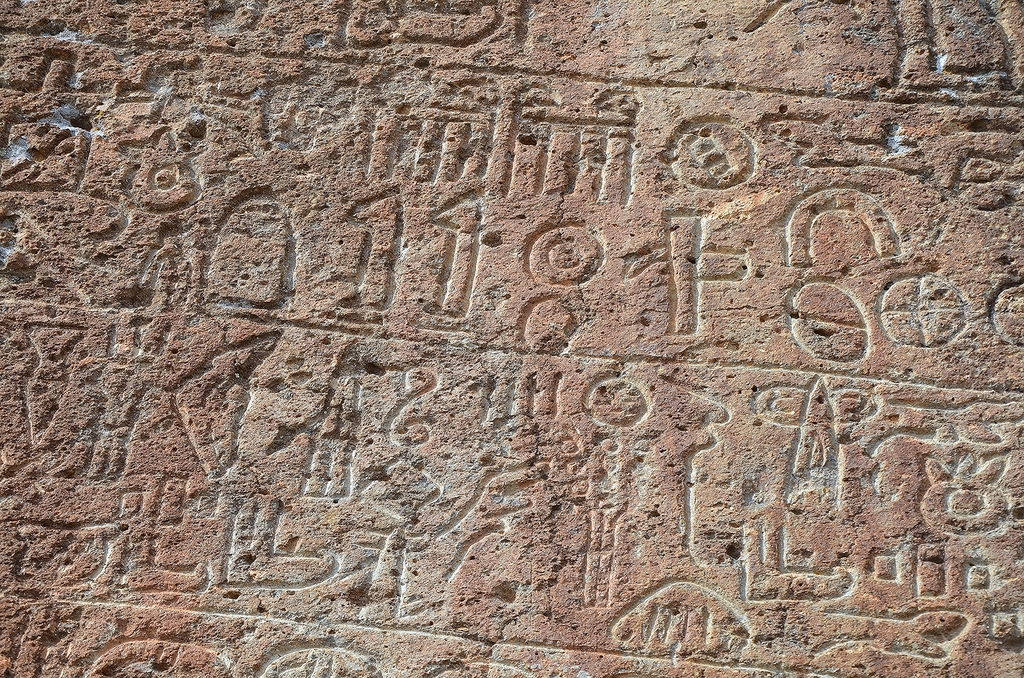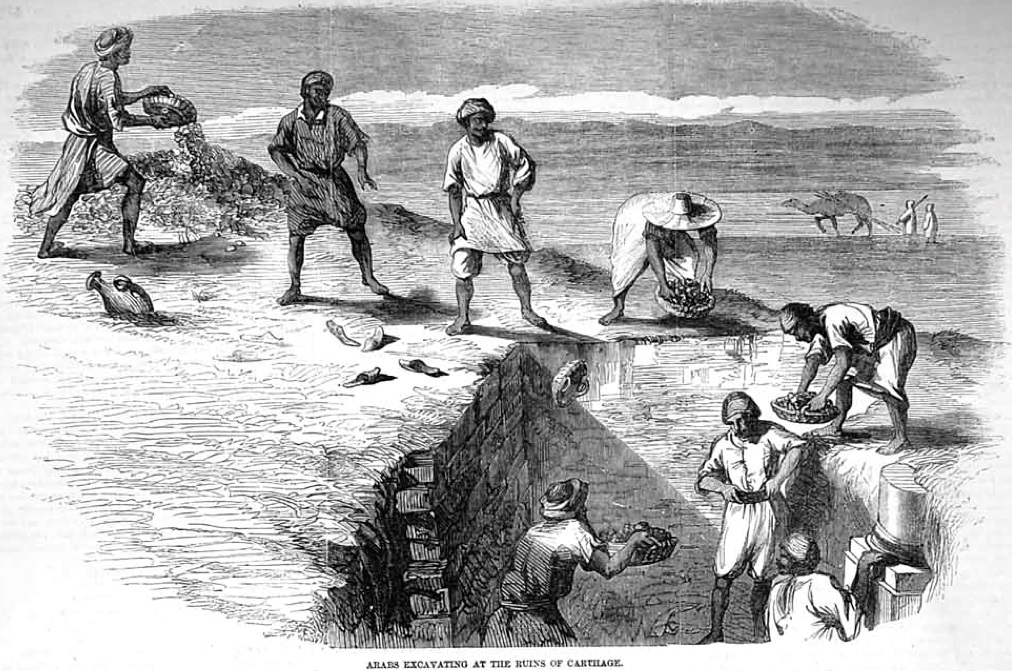Past Events
Interested in Cotsen events? Sign up for our mailing list.Speaker: Tao Shi, PhD Candidate, Cotsen Institute of Archaeology, UCLA
The rise of Erlitou not only declares the end of the Longshan Age, but also open a new era of the Luoyang-centric social network. However, how the political landscape was formed and what the knowledge root of Erlitou was have not been discussed. In this paper, I will discuss the Longshan Network as the process of knowledge preparation for the rise of Erlitou. Moreover, I will introduce my survey in the Qinling Mountain Range, and see the Dan River in the Qinling Mountain Range as an expressway of knowledge transmission for the Erlitou state.
Contact Matthew Swanson
Email mswanson@ioa.ucla.edu
Phone
Speaker: Dr. Marcos Llobera, University of Washington
This talk centers on the on-going Landscape, Encounters and Identity project (http://leiap.weebly.com/) and various initiatives by members of the DigAR lab (Digital Archaeology Research Lab -www.digarlab.uw.edu/) at the University of Washington surrounding this project. Broadly speaking, the LEIA project is a landscape archaeology study that seeks to understand landscape and societal changes that played out from Pre-(Late Bronze Age) to medieval times in the Son Servera landscape (NE Mallorca, Spain). In addition to representing the first intensive and systematic surface survey in the island of Mallorca, the project has set out to meet several theoretical, methodological and public goals. Amongst the methodological goals, the project is developing new digital and computational tools for collecting, describing and analyzing survey and landscape data.
Contact Matthew Swanson
Email mswanson@ioa.ucla.edu
Phone
Speaker: Dr. Yanjun Weng, Assistant Professor, Jingdezhen University
Dr. Weng will speak about his current archaeological excavation project at the Luomaqiao Kiln site in Jingdezhen, a city with more than 1,000 years of continuous ceramic industry history. This lecture will explore the changing configuration of porcelain production along the long timeline as well as the corresponding distribution of products to royal needs, government divisions, and civilian markets of both domestic China and overseas.
Yanjun Weng obtained his PhD in archaeology in 2017 from Peking University and has been active on field works of Chinese ceramic archaeology since 2010. Before that, he received master's and undergraduate's degrees in economics and international trade.
Contact Matthew Swanson
Email mswanson@ioa.ucla.edu
Phone
Over the last hundred years or so, a number of theories have been proposed to explain the origins of ancient Israel. All these have been informed to some degree by the biblical text and all have considered the role of New Kingdom Egypt and the collapse of empires throughout the Near East circa 1200-1100 BCE. The lecture will present a radical new proposal: that Egypt itself instigated “Israelite” settlement.
Contact
Phone
Speaker: Dafna Langgut
Cores obtained from the Dead Sea and the Sea of Galilee were used to reconstruct past climate conditions in the Levantine region during the Bronze and Iron Ages. The records were studied in high resolution for their lithological and palynological patterns. Their chronological framework is based on radiocarbon dating of short-lived organic material. The detailed paleoclimate reconstruction points to a dramatic dry event in the later phase of the Late Bronze Age, around the middle of the 13th century BCE. This pronounced dry phase lasted about 120 to 150 years, and was followed by much wetter climate conditions during the Iron Age I. The increasing humidity enabled the expanding of agricultural activities in the area (e.g., cereals, olive). The Iron Age II was characterized by a slight decrease in humidity. This new high resolution paleoclimate reconstruction helps to better understand the so-called “Crisis Years” in the eastern Mediterranean, as well as quick recovery in the Iron I, including the emergence of new entities in the highlands regions of the Levant. It also shed light on the economic strategies of the region’s ancient settlers (e.g., agriculture, grazing).
Contact Matthew Swanson
Phone
Speaker: Dr. Li Min, Associate Professor, Department of Anthropology, UCLA
In this lecture Dr. Li Min will discuss the current trends of Chinese archaeology based on his observations of the conference "In Search of Early China through Archaeology: Celebrating the 70th Anniversary of Chinese Archaeology at UCLA" co-sponsored by the Cotsen Institute of Archaeology. This review of current state of research is followed by a re-visit to the highly contentious topic of the Xia (ca. 2100-1600 BCE), the first dynasty in Chinese historiography and the fountainhead of many important political institutions in Bronze Age China. Instead of debating on the historicity of this legendary regime and the stages of evolutionary typology, Dr. Li Min will approach this topic from the perspective of political experimentation and social memory by asking these questions: What made the late third millennium BCE an important watershed in sociopolitical history of China as seen through the archeological lens? What were the contributions of the Longshan and Erlitou legacy of the early second millennium BCE to the emergence of the Shang civilization during the late second millennium BCE? How was the social memory of the pre-Shang legacy transmitted to the Zhou society at the end of the second millennium BCE? How did the Zhou narratives about the Xia civilization correlate to the archaeological landscape of the second millennium BCE? Against the backdrop of societal collapse in lowland Neolithic centers and intensified interactions with Eurasian exchange networks among the highland communities, I argue that the emergence of major Longshan centers in highland basins during the late third millennium BCE and the subsequent rise of the first Bronze Age city at Erlitou in the Luoyang Basin during the early second millennium BCE had critical contribution to the formation of the Xia legacy in Zhou storytelling about the past. Far from a myth invented by the Zhou to justify its conquest of Shang, the pre-Shang legacy served as major source of political knowledge for the Zhou state-building enterprise and the Xia corresponded to a culturally constructed constellation of political concepts, institutions, and social memories of different episodes of state building from the Longshan and Erlitou periods.
Contact Matthew Swanson
Email mswanson@ioa.ucla.edu
Phone
Speaker: Dr. Lorenzo d'Alfonso, New York University
Drawing upon textual and archaeological data, one can reconstruct the formation of a post-Hittite political entity in Cappadocia, the Land of Tuali, during the late 12th century BCE. This entity grew larger and more structured by the late 10th and 9th centuries before being substantially reduced by the late 8th century expansion of the Assyrian empire toward the northwest. Expanding from this central Anatolian case study, this talk will examine the historical processes that characterized the aftermath of the Hittite empire in Anatolia and the northern Levant and connect them to the fragility, collapse, and regeneration of early polities.

Contact Matthew Swanson
Email mswanson@ioa.ucla.edu
Phone
Speaker: Professor James McHugh, Associate Professor, School of Religion, USC
Professor James McHugh explores the complex world of drinks and drinking in pre-modern India. From rice wine to palm toddy, a huge variety of drinks were made. In the early centuries of the common era, another drug—betel—joined the mix too, though cannabis and opium appeared much later. How and where were these drinks and drugs consumed? Were they forbidden or permitted? How did medical scholars think they worked? And how are they related to religion and mythology?

Contact Matthew Swanson
Email mswanson@ioa.ucla.edu
Phone
Speaker: Dr. Ridha Moumni, Institut de Recherche sur le Magreb Contemporain
In Tunis, the first collections of antiquities were established in the 18th - 19th centuries. European Consuls, foreign scholars, and international traders acquired most of the archaeological remains then available from the ancient city of Carthage. Whether growing out of their personal taste, commercial considerations, or a desire for cultural distinction, they enriched the collections of major European museums. This collecting practice was not limited to foreigners, but also touched the local ruling class. Ministers and the Bey himself constituted rich collections, the most famous of which belonged to the main Tunisian families of the 19th century. The result of ongoing sustained effort, these collections had a notoriety exceeding the country, guaranteeing the fame of their owners on a transnational level, as when they were exhibited in World’s Fair of 1855 and 1873. The Tunisian ruling class quickly became aware of the stakes of their cultural heritage, formerly ignored, which became an important referent of national identity before the French colonization in 1881.

Contact Matthew Swanson
Email mswanson@ioa.ucla.edu
Phone
Speaker: Dr. Timothy Murray, Charles La Trobe Professor of Archaeology, La Trobe University
In this talk, Dr. Murray will briefly outline the essence of a new interdisciplinary research project exploring the historical archaeology of extensive pastoralism in Australia, with a particular focus on the Western Division of New South Wales. Core elements of the project span conventional ecological history (especially the impact of sheep and cattle grazing on the rangelands of the region), as well as the history of wool as a global commodity, the impact of the dispossession of indigenous people by European settlers, and the impact of new technologies such as fencing, railways, but particularly drilling for artesian water. The research project thus considers many elements of a more general inquiry into the ecological and economic impacts of the creation of both national and imperial entities (and identities) during the nineteenth and early twentieth centuries around the globe.
Contact Matthew Swanson
Email mswanson@ioa.ucla.edu
Phone
- ‹ previous
- 36 of 50
- next ›


